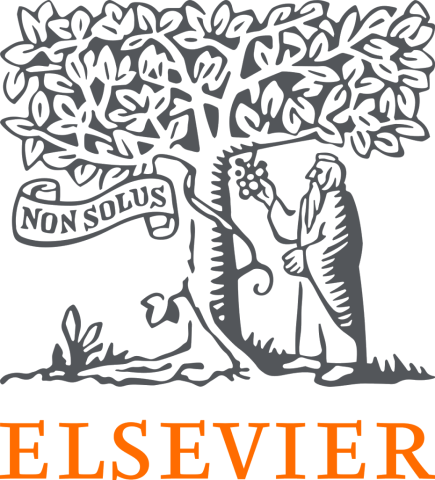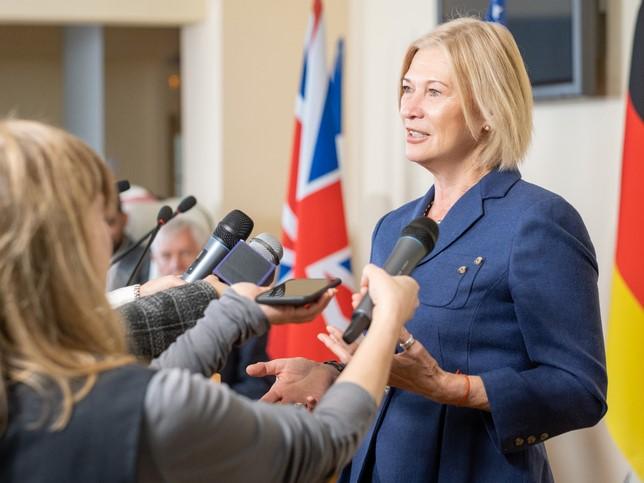
Being a public scientist is not an easy choice
When scholars know their data well and can see their findings being ignored, they should be comfortable enough to speak out. Here, Paul McGreevy offers advice to those contemplating putting their heads above the parapet
Research management
Sponsored by

Elsevier helps researchers and healthcare professionals advance science and improve health outcomes for the benefit of society.

You may also like
Popular resources
For far too long the public regard for evidence-based arguments has been suppressed by the power of media and corporations. And while the importance of being a good communicator is ostensibly supported in academia, the mainstream media seem to have more time for scholars from the humanities than those from the sciences.
On the bright side, the realities of Covid-19 and climate change have encouraged more people to recognise the importance of peer-reviewed data. Communication in such a contested space means that activists are increasingly relying on research to challenge the status quo. However, to my cost, I have discovered that when scientists use the same data, even when it is from their own labs, they can also expect to be labelled activists.
- How to improve the public understanding of evidence
- Fake news and disinformation abounds, but what can universities do?
- Amplifying research: five features of successful impact generation
This article explores how best to establish and manage public commentary when your research or areas of expertise intersect with industries and contradict their position. It also touches on how to decide when to comment and how to make yourself heard.
I speak from the perspective of more than 35 years as a veterinarian, 30 of those specialising as an animal welfare scientist, where my focus on horses and dogs has led me to reveal evidence that is often disliked in the competitive worlds of racing, equestrianism and dog showing. Veterinary practitioners are rarely short of an opinion, but what happens when veterinary scientists believe change is needed and they hold what may be pivotal data?
At first blush, voicing concern for animals may seem a core business of veterinarians. However, as recently as 2006, the Australian Veterinary Association’s (AVA) strategic plan identified the rise of animal activism as one of its major threats. Fortunately, this attitude is changing. In the AVA’s 2016 strategy, animal welfare took the number one position of five priority areas. As the evidence for animal sentience has become too compelling to ignore, many vets have gained the confidence and conviction to speak up for animals. The advent of evidence-based advocacy for animals should make this an exciting time to be a veterinarian. That said, leading animal welfare scientists are rarely veterinarians – I am still considered a rare breed, especially in Australia.
In Britain, things are a little further advanced. In 2016, the British Veterinary Association (BVA) adopted a new animal welfare strategy, “Vets speaking up for animal welfare”. This is a critical step forward. Where the traditional role of veterinarians has been to advocate only for animals in their care, this strategy provides a framework to help vets advocate good animal welfare outcomes for all animals. The BVA also seeks to lead debate on the acceptability of animal husbandry methods. This role sits well with the public but has not been universally welcomed by industries that use animals and wish to discourage external commentary on their standards.
The animals in my care are chiefly horses and dogs. For the past 24 years, my work has revealed why we should stop breeding dogs with extreme features (such as brachycephalism, the short-skulled morphotype characteristic of dogs with squashed-in faces, which prevents them from breathing normally) and for the past 15 years why we should stop whipping tired racehorses. I am enormously grateful to those rare colleagues who provided back-up and public support when my commitment to improved animal welfare has caused others to look away.
As a senior academic at a veterinary school, I was never actively encouraged to advocate by my line managers. The 35 articles I co-authored in The Conversation about horse-racing and the science of whip use and previous work were never valued in annual workplace reviews nor counted in any workload models. So, the cost of advocacy has included an opportunity cost in terms of a loss of those outputs that did appear in the workload model. Fundamentally, these managers were doing only what was required of them, so the blame for this failure lies with the higher education systems that continue to dodge mechanisms that reward impactful outreach.
I have also paid another, more insidious price for advocating on topics where my research data have challenged the status quo. I’ve lost count of the number of times I’ve approached the lectern at international scientific conferences and heard the chair introducing me as “no stranger to controversy” or “long-time campaigner” or have been publicly branded a troublemaker or “media whore” by competing colleagues. It seems the extension from presenting challenging data to advocating for change based on those data is a step too far for some. For me, it is an ethical imperative. But it’s one that has undoubtedly had an adverse impact on my chances of securing industry funding and on the outlook of my postgraduate students, who understandably wish to avoid being tarred with the same brush.
I do not want to suggest that the next generation of animal scientists and veterinarians should actively avoid advocacy. But forewarned is forearmed. Having cut my teeth as a junior academic with dog-related issues such as brachycephalism, it was not until I was made a full professor that I dared to speak up for racehorses. I wish I had known, immediately after my PhD, what I know now.
So, here is my advice to those contemplating putting their heads above the parapet:
- Develop a support network among advocates who have a scientific training and find trusted colleagues who are prepared to test your position.
- Manage your messaging so that you reduce the chances of being misquoted. Beware of over-excited media officers who seek to oversimplify or sensationalise your copy to attract clickbait.
- Speak softly and carry a big stick – this means adopting a moderate tone that helps fence-sitters to listen. The big stick is your peer-reviewed data.
- Expect competing peers to hold you at arm’s length.
- Brief your family on why you’d prefer to stand your ground so they know why you are checking your car’s brakes (my sister, who is also a welfare veterinarian, reminds me that I am on the side of the angels, but I don’t want to meet them prematurely).
- Understand why others run away to win the favour of industry-based funding bodies and save their career prospects.
- Unpack how ad hominem attacks originate.
- Consider and prepare for the worst your critics are capable of: handsomely funded defamation cases; death threats; and the loss of research funding.
- Expect to have to play the long game because, if you’re around long enough, your truth will pass through Schopenhauer’s three stages. First, it will be ridiculed, then violently opposed, then eventually accepted as being self-evident. If you’re getting the second response, and have thick enough skin, celebrate that as progress!
Covid-19 and climate change have highlighted that being a public scientist is a critical role but not an easy choice – even to people outside of academia, such as journalists and university media officers. Nor should it necessarily be of great appeal, lest it attracts those with a self-serving agenda. It’s also not an expectation of every scientist, but when they know their data well and can see their findings being ignored, scholars should be comfortable enough to talk about it and their workplaces should help to make that possible. Those who do so should know what to expect and ensure that they have the support necessary to withstand the consequences. The reward is that they will be able to sleep at night.
Paul McGreevy is professor of animal behaviour and welfare in the Faculty of Science, Agriculture, Business and Law within the School of Environmental and Rural Science at the University of New England. He is a Fellow of the Royal College of Veterinary Surgeons and the Royal Society of New South Wales and co-founder and honorary fellow of the International Society for Equitation Science.
If you would like advice and insight from academics and university staff delivered direct to your inbox each week, sign up for the Campus newsletter.
Research management
Sponsored by



Comments (0)
or in order to add a comment